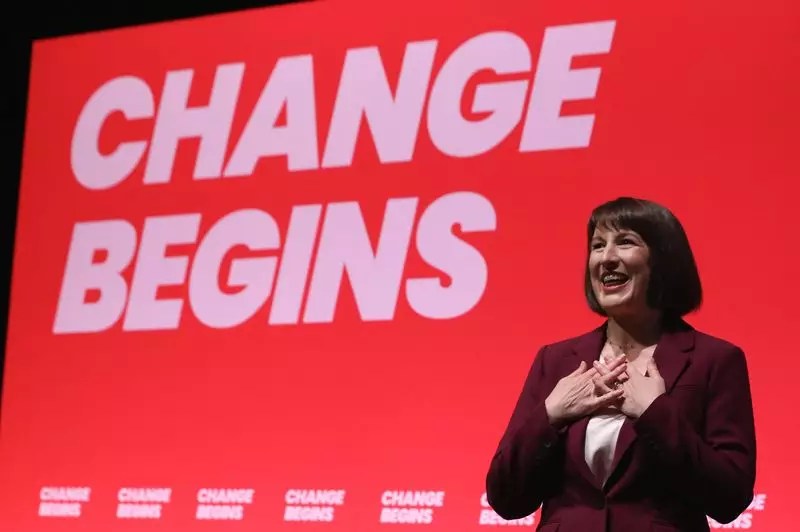In the wake of significant electoral victory, British finance minister Rachel Reeves has boldly declared a departure from the previous government’s austerity measures. This announcement comes hot on the heels of public discontent and criticisms of the Conservative Party’s harsh economic policies that emerged following the 2008 financial crisis. Austerity, characterized by severe spending cuts, has been blamed for eroding public services and restricting economic growth, leaving an undeniable impact on the fabric of British society. As Reeves stands before her party’s annual conference in Liverpool, she aims to reassure the public that Labour will not travel down the same treacherous path of austerity but will embrace a vision of investment and sustainable growth.
Reeves’ speech presents an optimistic portrayal of the future, emphasizing a transformation towards a more prosperous Britain fueled by investments in manufacturing and services. However, despite the upbeat tone, many critics argue her address falls short in providing concrete details about how these ambitions will be realized. While she articulates a desire to ensure that labor is rewarded with fair wages and that future generations can thrive, specifics about timelines and actionable steps are glaringly absent. The message seems to be a balancing act—conveying hope while simultaneously acknowledging the financial constraints imposed by the previous Conservative government. The articulation of this tension illustrates the dual challenge Labour faces: fostering optimism while navigating the legacy of fiscal shortfalls.
The shadow of the Conservative administration looms large. Reeves has articulated the need to confront the financial challenges inherited from her predecessors, labeling the Tory approach to austerity as “destructive.” This state of affairs includes a reported £22 billion gap in the public purse, a point she emphasized to justify the tough decisions she would have to make, including controversial cuts to winter fuel payments for pensioners. Reeves positions these decisions not as a retreat from ambition but rather as necessary sacrifices to restore economic stability and secure future investments. However, the harsh reality remains that challenging decisions are likely to face significant public backlash, questioning the depth of the support for her government’s policies.
One of the most striking aspects of Reeves’ speech was her vow not to increase taxes on income, National Insurance, VAT, or corporation tax. This assertion reflects a delicate balancing act—promising economic growth while maintaining tax breaks to appeal to businesses and constituents alike. Nonetheless, this stance raises critical questions about how Labour plans to fund its ambitious agenda. Reeves emphasized the importance of political stability in attracting business investment, but the faith projected rests on a foundation clouded by uncertainty. The public is left wondering: Can ambitious growth be achieved without a robust funding mechanism?
Another underlying aspect of Reeves’ speech is the pressing need to repair the public’s trust in government. Recent scandals surrounding pandemic contract awards and allegations of impropriety have left citizens skeptical of political leaders and their capabilities. Reeves’ announcement of appointing a COVID corruption commissioner aims to address some of these concerns, yet it’s uncharted territory for her government. The success of future initiatives rests not only on economic strategies but also on the ability to reinforce public confidence in the Labour Party’s commitment to transparency and accountability.
Faced with the dual challenge of reviving a struggling economy and restoring faith in governance, Rachel Reeves’ vision for Britain’s financial future is both compelling and fraught with complexity. As she beckons for a departure from austerity, the substance behind her promises will be scrutinized. Moving forward, it will be crucial for Labour to elucidate its strategy, address public concerns, and avoid the pitfalls that shadowed the previous administration. A balance of optimism and realism will be essential if the party hopes to rally the nation towards a collective vision of prosperous growth that resonates with all citizens.


Leave a Reply